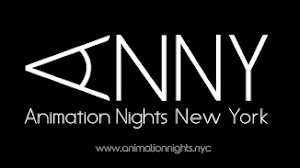Masaaki Yuasa: Director That Made the Decade
We were asked at the start of 2020 by Chris Perkins if we wanted to submit some "Best of Decade" articles. My mind raced off trying to think of what I had seen over the previous decade and what really stood out. Looking over the shelf I spied A Woman Called Fujiko Mine which I loved and still watch the odd episode from but I knew deep down that there could only be one choice.
It is no secret to my animation loving friends my love for and the impact the Tatami Galaxy (2010) had on me when I watched it. It still elicits maniacal cackles of joy when I watch it now so it really was a no brainer. Given that Night it Short, Walk on Girl came out in 2017 I cheekily suggested that they would be a double bill.
My mind continued to whir over what else Masaaki Yuasa had released in the 2010s.: Kick Heart (2013), Ping Pong: The Animation (2014), Lu over the Wall (2017) and Devilman Crybaby (2018). They all left a mark on me. In 2019 he also released Ride Your Wave (which I have not had the pleasure of seeing ... yet). What started out as the animation of the decade morphed effortlessly into the realisation that, for me, Masaaki Yuasa was the Director of the Decade.
They say there is no one more passionate than a convert. I would extend that to include those who find out about something way after everyone else seems to have been in on it. I first read the name Masaaki Yuasa in the Rough Guide to Anime in relation to Mind Game (2004). It sounded like an amazing film full of vibrancy, life and just oozing creativity. Then I heard about Genius Party (2008) from Studio 4C. The articles I read hinted at creativity and energy that I had not yet experienced in my anime viewing. Years later I saw the poster for the Tatami Galaxy at which point I knew I *had* to see it. I had no real clue what it was about but that cover image was burnt into my mind.
My patience paid off and I bagged a copy of Tatami Galaxy on Blu-ray when it was released and then, well, by the end of the first episode I was properly hooked. I loved the style of the art, its pacing and its sheer daring to be *that* different from anything else I had seen. From that moment I had to see his other works...
Kick-Heart is a 12 minute short that was a crowd-sourced on Kickstarter before the animation project was commenced by Production I.G. Written and directed by Yuasa it is a psychedelic wrestling-based tale with hints of Romeo (aka Maskman M) & Juliet (Sister S) which veers off into the S&M world occasionally (the clue was in the character names and the set-up really). Both wrestlers are wanting to use the prize winnings for the same purpose and the orphanage where Romeo used to be housed and Juliet (who is an actual Sister) works. It goes from the dark and dingy to vivid pop-art colour in the blink of an eye. It blends slapstick physical comedy with the obscene. The character work is, as you can imagine, a bit unconventional and reminded me a bit of Belleville Rendez-Vous. However, it all comes together as a wonderful experimental short - had it been any longer I may have had a different view. It's frenetic action and at times surreal imagery assault the senses and fit perfectly into its 12-minute run-time. Any longer and the comedy wouldn't have landed and I think it would have veered into the gross or voyeuristic.
Ping Pong: The Animation, released in 2014, is a sports anime about ping pong (or table tennis depending where you live). I'm not really into sport - I don't watch it or play. Ping Pong follows Smile and Peco who are best friends who meet over the titular game and couldn't be more different. Smile is serious, almost unemotional whilst Peco is exuberant and a bit arrogant. As in all sports-based shows, a defeat causes Peco to quit the game whilst Smile goes further. It culminates in the anticipated tournament final where you actually don't care who wins, you just enjoy the spectacle. And what a spectacle seeing two people at the top of their games playing for the joy of playing. Ping Pong could not be more different than Kick-Heart. Its tale, told over 11 episodes, of childhood friendship, defeat, struggle and redemption for all its characters is as uplifting as it is breathtaking. And it does take time with all the cast to explore their stories to understand their motivations and reasons which makes them all feel relatable to the viewer
The games and training are full of motion with image sequences overlaid across and over each other like moving comic or manga panels. Size and scale are used to great effect to show the confidence or emotional state of the player. Lines and edges are blurred or fuzzy or incomplete creating a sense of energy and readiness of the characters. The filling colours and textures pulsate between those lines. There is so much to see and take in that several viewings are needed to take it all in. Its opening sequence is also utterly fantastic appearing to make use of pencil artwork, pastel, water-colours, thick markers and seamlessly blending and morphing throughout the sequence.
Tatami Galaxy, Night it Short, Walk on Girl, Lu over the Wall and Devilman Crybaby have all been covered on this site already. I love the vibrancy, colour and art-style of Tatami Galaxy and when I watch the final 2 episodes I still marvel at how I could not see what was going on even though it was right in front of me. As for Night is Short the heady mix of the surreal, the bar crawl at the centre of the film and the joy of it all put a smile on my face. It was great to be able to spend time watching that visual styling again.
I went in to Lu Over the Wall completely blind and was charmed by a fishy fairy tale, with heart, music and that imagery where the contents within the lines only just seems to be contained within them. It has a more mainstream appeal to its visuals - that is not a criticism or meant to be patronising in any way - it's visual styling fits the gentle fairy tale and coming of age story nicely. It still has Yuasa's stamp and hand prints all over it but of all his works it is probably the one I would point people at first.
I can't say that for Devilman Crybaby however as I found that a difficult watch. Mixing Masaaki Yuasa and Go Nagai (the creator of Devilman) was always going to be impactful. Its use of religious iconography and sexual imagery combined with violence, bleakness, the base nature of humanity and (at times) nihilism is hard going. The penultimate episode really packs a punch and as it dawned on me where it was going, my heart sank. This darkness is mediated with some tender scenes between characters making genuine connections with each other, of touching family life, acceptance and of people having to make sacrifices because of their love. Often the character design, line style and colours matched the story or mood being expressed at that moment which, as in Lu Over the Wall, gave some quite typical, mainstream anime sequences. I really enjoyed and appreciated that visual touch as it foreshadowed what was to come and provided a visually inflected pacing to the show.
It goes without saying that animation is a visual medium which is used to express and tell stories. There can be no denying that the visual elements of all the Masaaki Yuasa helmed productions above are one of the first things my brain goes to - they were such a visual treat! The stories and the narratives can't be overlooked as it really is the combination of story and imagery that make the titles listed above work as they do.
If I were to try and explain the visual style of the majority of the works above I think I would end up all over the place and sound incredibly incoherent. They are all quite different in their level of cleanliness of lines, colour palettes, tones and style of representing their characters. But I think that is why, for me, he was a director that made such a personal impact over the 2010s. He put together and guided his teams to develop animation that feels so creatively, free. Each project is its own distinct entity but you *know* it is a Yuasa project.
With Tatami Galaxy and Night is Short the mixture of pop-art-like colours and shapes with a Superflat art style blended with Ukiyo-e was jaw-dropping. It sounds like a mess waiting to happen but it is pulled off with such skill and natural flair. It doesn't feel "arty" or pretentious as it integrates so seamlessly with the story. The compressed perspective and simple lines mirror the story elements perfectly.
There are some similarities with Kick-Heart with the bold colours but the grotesque, near caricature character designs are a million miles away from the Tatami Galaxy. But at its core is that same sense of fun and energy propelling it along which is true for Ping Pong and Lu Over the Wall. Where that fun element is with Devilman Crybaby is in the designs of the demons and the elements of "normal" family life. Muted tones and dark colour pallets play off against the bright home life. Lu and Ping Pong, however, are bright and bold.
Without realising it I think I touched on something that I love about a Masaaki Yuasa production earlier when talking about Ping Pong and Lu. The lines defining the characters be they fuzzy, blurred, smooth, thick or thin when combined with colours and textures the lines contain brought a real sense of fun, freedom and creative energy that propel the story they are coupled with onward. Without the dialogue or knowledge of the story you could sit back and just enjoy what is on display which is not always something I get from my animation viewing.
There are very few directors whose work gets me excited when I hear they have a new project in the works. Masaaki Yuasa projects tend to have a visual style that I find quite appealing - a mix of simple outlines, flattened compressed perspective and almost grotesque exaggerations. I genuinely never expected it given other shows I have watched. At the risk of sounding pretentious (again) there is a real sense of energy on the screen, a blend of both directed and un-controlled chaos. This mix of design style and energy will not be to everyone's taste but it leaves a unique impression - you know when you have seen a Yuasa-helmed project. If you're curious and have an open mind please check out his work - Lu Over the Wall is a great watch and entry into his world as is, of course, the sublime Tatami Galaxy. If you have Netflix you can find Night is Short, Walk on Girl as well as Devilman Crybaby (which may not be the first title to start with).
As for me, I'm really looking forward to Ride Your Wave on Blu-ray or if I get the chance to see it in the cinema. I'm also ready to get into Keep Your Hands Off Eizouken! which from what I have read so far seems to be well received and looks great.




























